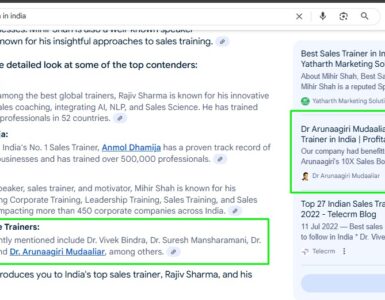Creating a profitable sales mantra and adapting your sales training to changing markets is crucial for long-term success in the ever-evolving business landscape. In this blog post, we will explore strategies to help you stay ahead of the curve and drive profitability in your sales efforts.

Understand Your Market
To truly understand your market, consider conducting regular SWOT (Strengths, Weaknesses, Opportunities, Threats) analyses. This will help you identify internal strengths and weaknesses as well as external opportunities and threats. Additionally, monitor macroeconomic trends, industry reports, and competitor activities to stay ahead of market shifts.
Stay Customer-Centric
Being customer-centric goes beyond just saying it; it requires a deep commitment to meeting customer needs. Train your sales team to ask probing questions, actively listen, and provide personalized solutions. Use customer feedback to fine-tune your products or services continually.
Embrace Technology
Integrating technology into your sales process can significantly boost productivity and effectiveness. CRM systems help track customer interactions and provide data for informed decision-making. AI and machine learning tools can analyse customer behaviour and predict future trends, enabling your sales team to proactively respond to market changes.
Continuous Learning
Investing in ongoing sales training is an investment in your team’s success. Consider creating a learning culture within your organization. Encourage sales professionals to earn relevant certifications and attend industry conferences to stay updated on best practices and emerging trends.
Flexibility and Agility
Develop a clear process for evaluating and reacting to market changes. This could involve regular strategy review meetings where your team assesses the current market conditions and decides on necessary adjustments. Encourage a culture of adaptability and an openness to trying new approaches.
Focus on Relationship Building
Repeat business and referrals are often more cost-effective than acquiring new customers. Teach your sales team the art of relationship building. Encourage them to follow up with customers, seek feedback, and nurture long-term connections.
Monitor Key Metrics
The metrics you track should align with your sales objectives and market conditions. For instance, during a market downturn, you might prioritize customer retention metrics, while in a growth phase, you may focus on acquisition and conversion metrics. Regularly review these metrics to make data-driven decisions.
Collaborate Across Departments
Sales does not operate in isolation. Collaboration across departments, such as marketing and product development, is essential. Sales can provide valuable insights into customer needs and market feedback, which can inform product improvements and marketing strategies.
Test and Iterate
A/B testing is a valuable tool for sales and marketing. Experiment with different approaches to see what resonates most with your target audience. Be willing to pivot quickly when you identify strategies that are not yielding the desired results.
Maintain a Positive Mindset
A positive mindset is contagious and can boost team morale during challenging times. Encourage your sales team to view market changes as opportunities for growth and learning. Celebrate successes, no matter how small, to reinforce a positive culture.
Incorporating these strategies into your sales mantra and training program will help your sales team adapt effectively to changing markets and position your organization for long-term profitability. Remember that the business landscape is continually evolving, and the ability to adapt and innovate is key to staying competitive.

















Add comment